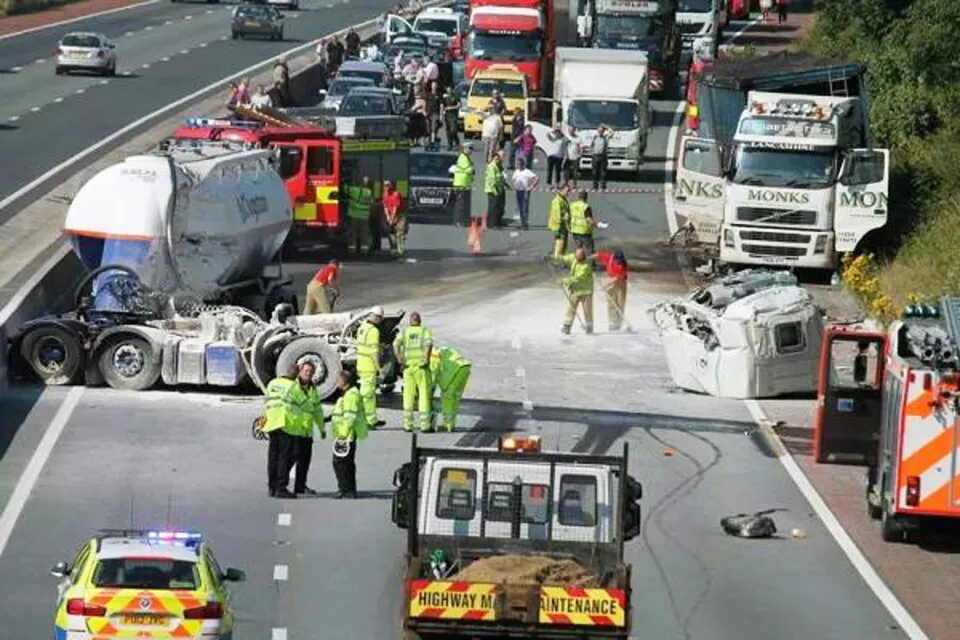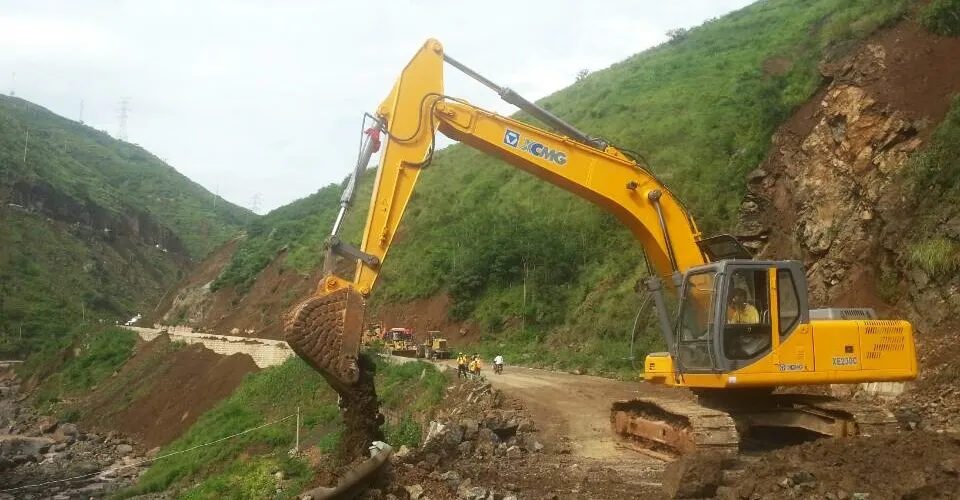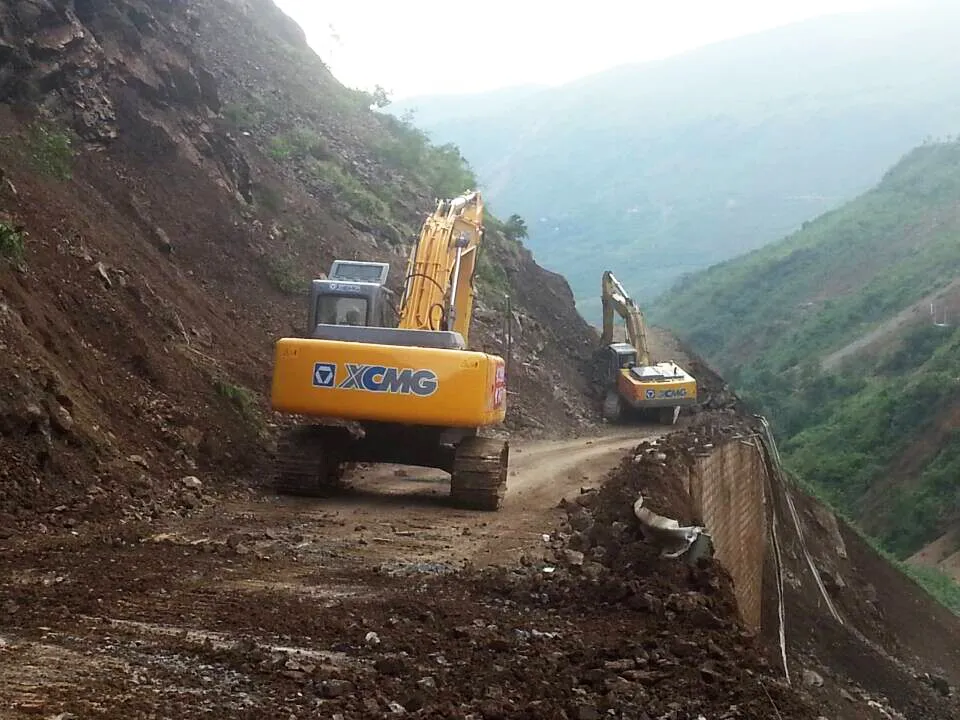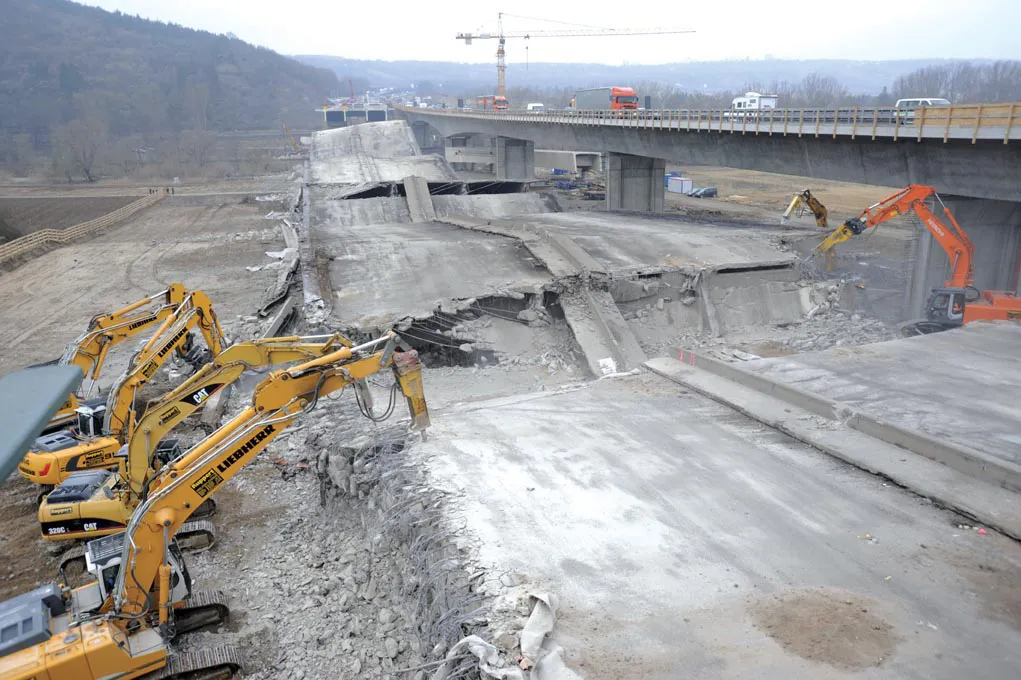It’s often a messy business cleaning up a motorway after a truck has shed its load, and the strangest of loads have been accidentally spread down the blacktop in the UK, according to Highways England.
The most recent incident was a slippery affair for maintenance crews – 24tonnes of lard that took a day to clean up, closing the motorway for 24 hours.
From toilet roll and toxic waste to wine and washing up liquid for dishes, clean-up crews sometimes must tread lightly as they go about their business. They
December 1, 2015
Read time: 3 mins

It’s often a messy business cleaning up a motorway after a truck has shed its load, and the strangest of loads have been accidentally spread down the blacktop in the UK, according to 8100 Highways England.
The most recent incident was a slippery affair for maintenance crews – 24tonnes of lard that took a day to clean up, closing the motorway for 24 hours.
From toilet roll and toxic waste to wine and washing up liquid for dishes, clean-up crews sometimes must tread lightly as they go about their business. They sometimes might also shed a tear or two, as in the case of thousands of cans of beer that had to be collected individually by hand, the agency reported.
“Our teams expect the unexpected,” said Melanie Clarke, director of customer operations at Highways England. “But when you’re dealing with 10tonnes of salmon, dangerous toxic chemicals or emulsion paint, the clean-up operation is somewhat complicated.”
For example, diesel fuel, often spilled after a truck incident, reacts with asphalt causing the road surface to rot, she explained.
Teams have to use highly-specialised hydroblasters to completely clean the road. Left-over diesel could create potholes so it’s important that any cleaning is very thorough. If the road is badly damaged, it may have to be totally re-laid to maintain surface integrity.
“Milk poses a similar problem. It rots the road, can stick to the surface and becomes very slippery in wet weather. All traces have to be cleaned off the road before it is safe to reopen,” said Clarke.
In one incident, a mini-digger was called in to scoop up tonnes of baked beans that had escaped their damaged tins after the truck incident.
Another incident involved that very British of food, Marmite. The yeast extract that is often spread on bread or toast was this time spread across a motorway. Specialist clean-up teams had to lay down sandbags to stop it spreading further.
Imagine the surprise on the faces of clean-up crews when they were called to an incident in the wee hours of the morning and had to roll up their sleeves and pick fish - 10tonnes of salmon.
There were tragic consequences for 1,500 chickens in one night-time motorway incident; 1,500 died. But rescuers saved around 4,500 chickens, albeit running around after them in the surrounding fields during the night.
In another incident, powdered cement spread across the motorway lanes and mixed with diesel and oil from one of the trucks involved in the incident. Specialist teams needed to clear the road before the cement could get wet and start to set. The incident happened just in the afternoon on one day in July last year, one of the hottest days of the year.
The most recent incident was a slippery affair for maintenance crews – 24tonnes of lard that took a day to clean up, closing the motorway for 24 hours.
From toilet roll and toxic waste to wine and washing up liquid for dishes, clean-up crews sometimes must tread lightly as they go about their business. They sometimes might also shed a tear or two, as in the case of thousands of cans of beer that had to be collected individually by hand, the agency reported.
“Our teams expect the unexpected,” said Melanie Clarke, director of customer operations at Highways England. “But when you’re dealing with 10tonnes of salmon, dangerous toxic chemicals or emulsion paint, the clean-up operation is somewhat complicated.”
For example, diesel fuel, often spilled after a truck incident, reacts with asphalt causing the road surface to rot, she explained.
Teams have to use highly-specialised hydroblasters to completely clean the road. Left-over diesel could create potholes so it’s important that any cleaning is very thorough. If the road is badly damaged, it may have to be totally re-laid to maintain surface integrity.
“Milk poses a similar problem. It rots the road, can stick to the surface and becomes very slippery in wet weather. All traces have to be cleaned off the road before it is safe to reopen,” said Clarke.
In one incident, a mini-digger was called in to scoop up tonnes of baked beans that had escaped their damaged tins after the truck incident.
Another incident involved that very British of food, Marmite. The yeast extract that is often spread on bread or toast was this time spread across a motorway. Specialist clean-up teams had to lay down sandbags to stop it spreading further.
Imagine the surprise on the faces of clean-up crews when they were called to an incident in the wee hours of the morning and had to roll up their sleeves and pick fish - 10tonnes of salmon.
There were tragic consequences for 1,500 chickens in one night-time motorway incident; 1,500 died. But rescuers saved around 4,500 chickens, albeit running around after them in the surrounding fields during the night.
In another incident, powdered cement spread across the motorway lanes and mixed with diesel and oil from one of the trucks involved in the incident. Specialist teams needed to clear the road before the cement could get wet and start to set. The incident happened just in the afternoon on one day in July last year, one of the hottest days of the year.









